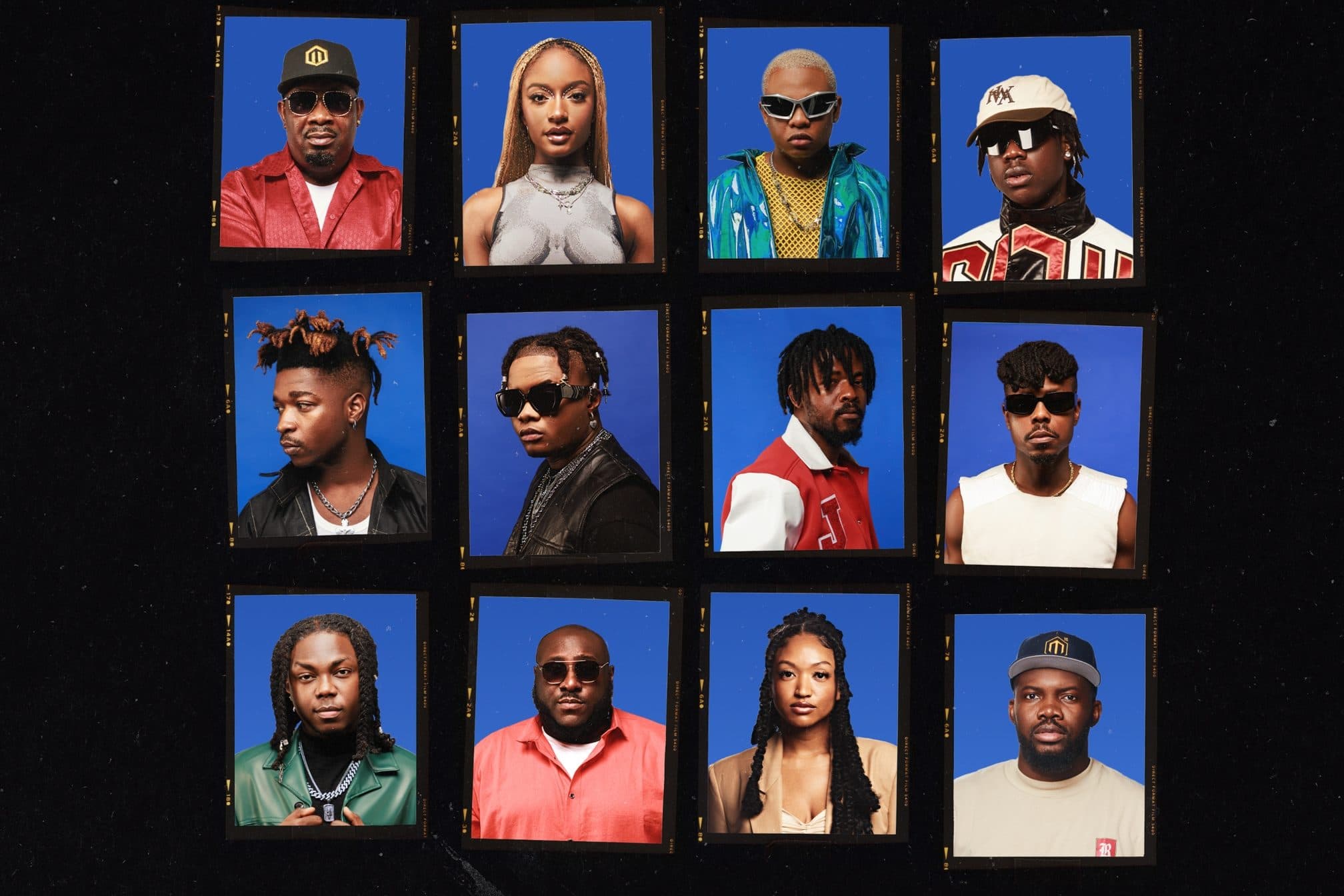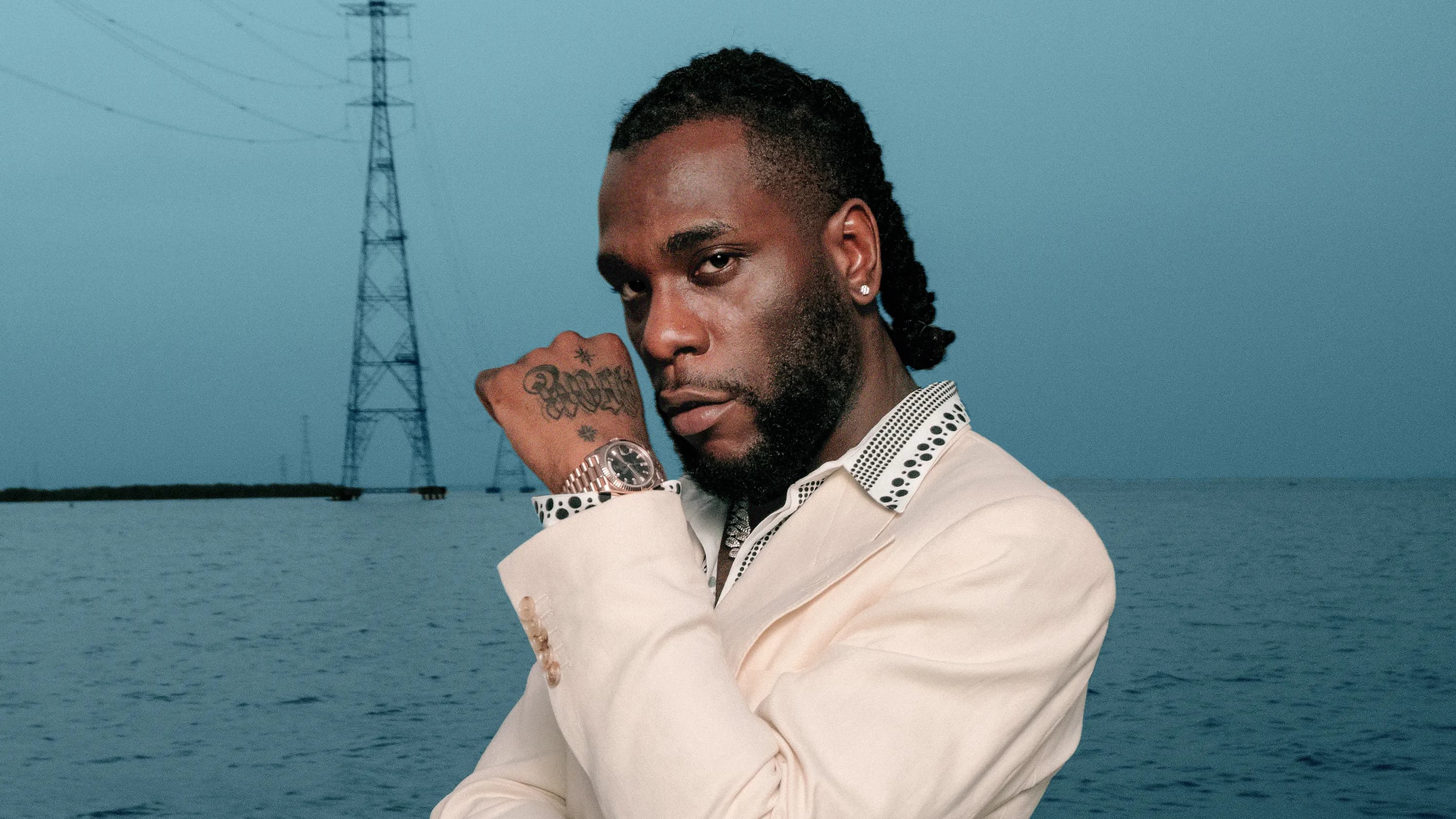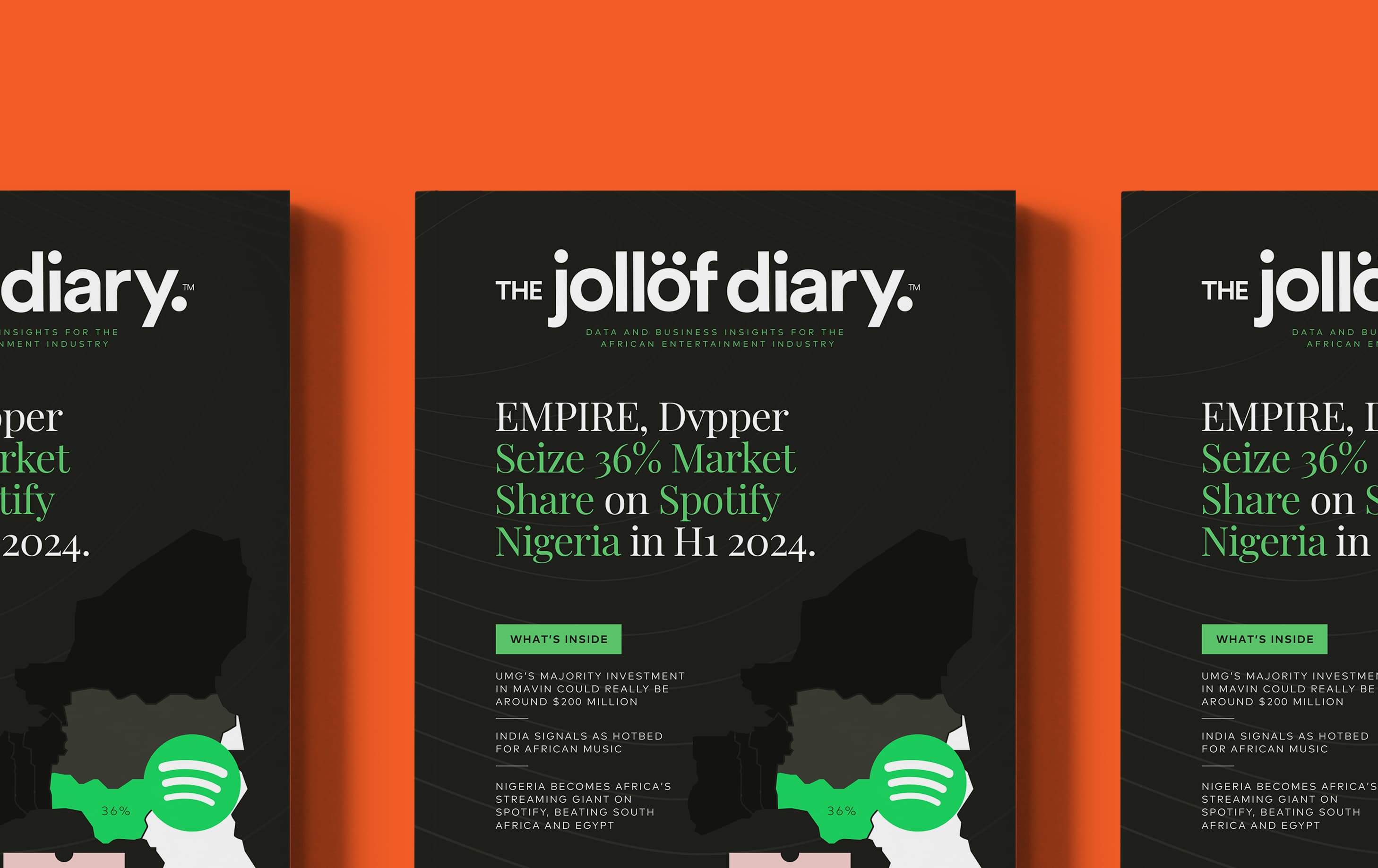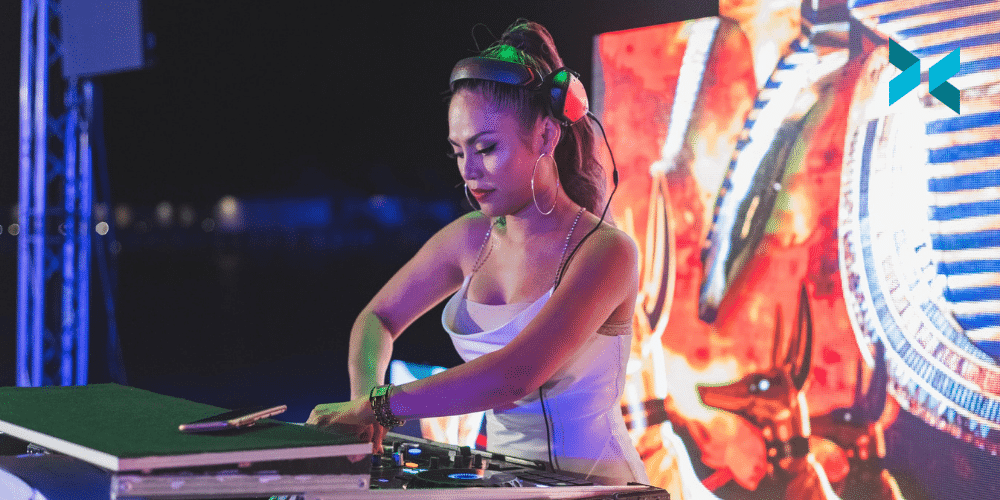Basic Legalities of Live-streaming DJs Should Understand
Some DJs have expressed concern about Instagram yanking live-streaming of their set but why? What are they unaware of?

So, I thought it's probably high time DJs understood the [basic] legalities of live-streaming, as promised earlier.
TBH, it's a complicated situation.
But start here 👇
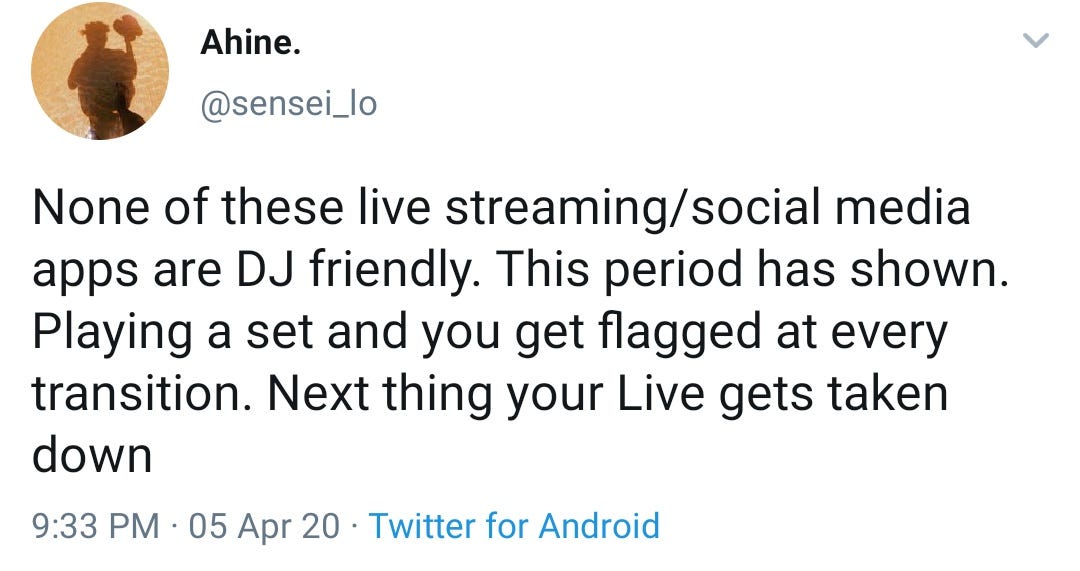
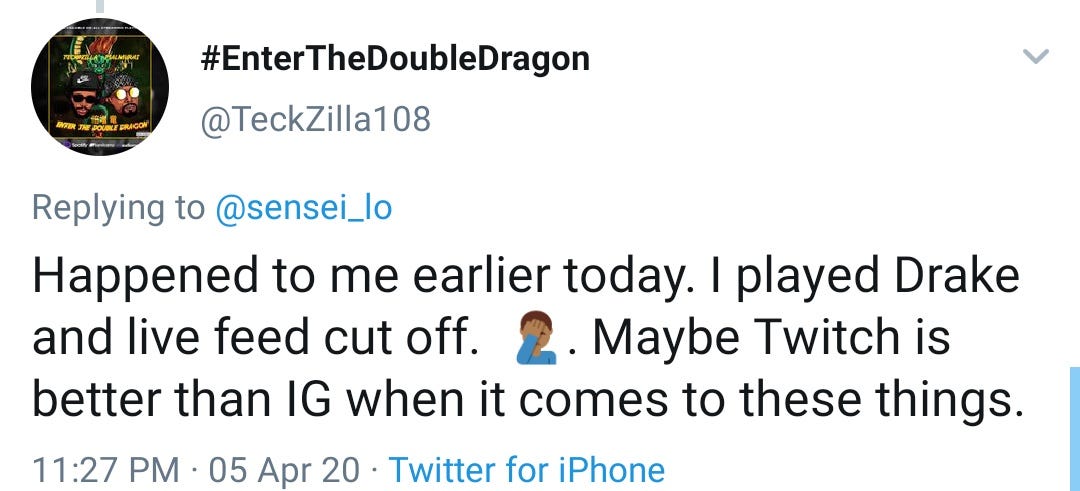
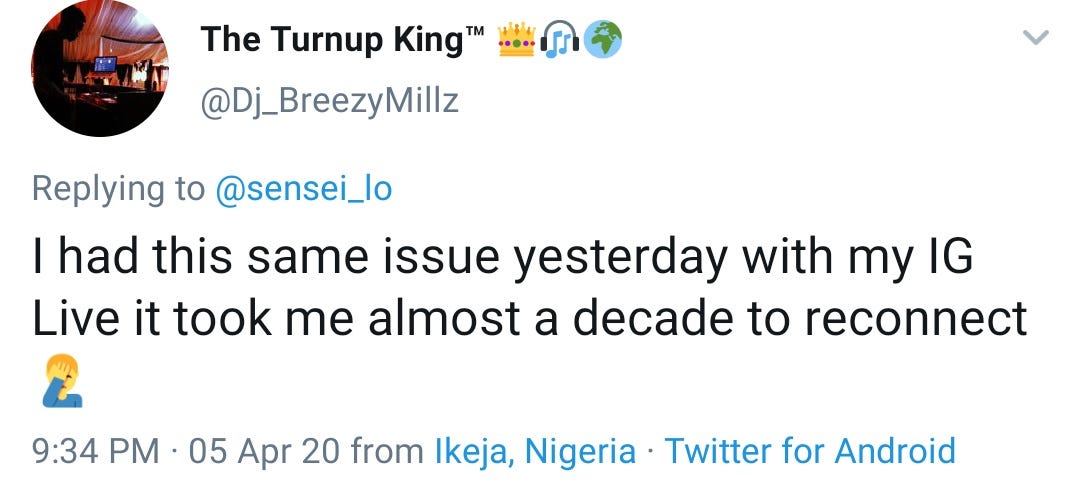
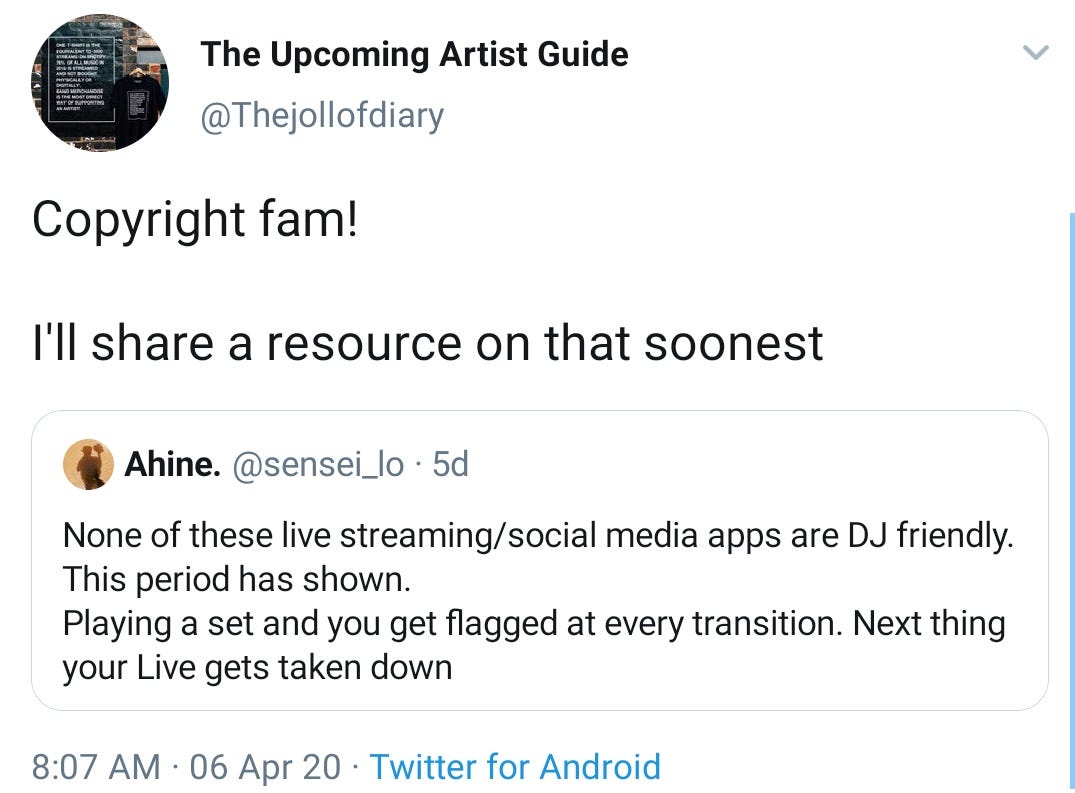
Last week, Bobby Flowers, an LA DJ had complained about being cut 5 times in a single hour while live-streaming on IG, vowing to find a new platform to pitch his tent. For Flowers, every time his video gets yanked, he's trying to figure out a track that won't get cut, of course you know will most likely ruin the relish that should come with playing a set amidst the madness going on in the live music industry right now. For context, Billboard reports that every day after April 1st Live Nation can’t put on concerts, it loses earning $30.3 million in revenue.
Bringing it home, some Nigerian DJs have at different times taken to Twitter to express similar concerns.
According to DJ Venum, Instagram suspended his set on live-stream while playing certain records; notably one of the records off Burna Boy’s last album, African Giant – an album whose custodians are Warner’s Atlantic Records and Universal Music Publishing Group (UMPG), UMG’s publishing arm (including publishers of the producers where applicable).
As we have turned to live-streaming following the gruesome impact of COVID-19 on the live event sector in the music industry, relevant [social] platforms have most likely beefed up its Copyright detection system to curb a surge in Copyright flouts.
A mess, that is!
This, I guess is new to Nigerian DJs who are probably strangers to clearing a track before adding to their set to play at events, concerts, or live-streaming. It’s been all ‘vibes’ for the most part, without some strike of any sort. DJs bringing their sets to platforms like Instagram exposes them to another part of the music business unbeknownst to them – “the ‘anomaly’ of their set being interrupted multiple times by Instagram “for no reason exactly”. There probably hasn’t been ample information about the due process of clearing a track before going ahead to BENEFIT from it as disk jockeys.
Ideally, DJs who make a buck off DJing should pay rightsholders of every song they play at events, concerts etc – This type of royalty is referred to as “Public Performance”. I hate to break it that DJs have long been guilty of copyright infringement and it’s taking this pandemic and a couple of Instagram flags to talk about it.
As discussed months back, every song has 2 copyrights viz:
• Sound recording (masters) – actual song recording typically owned/controlled by the artist or label.
• Composition (publishing) – encompasses lyrics, melody etc of the song, typically owned by the songwriter or producers and controlled by a publisher.
The explosion of live-streaming will most likely give rise to legal issues for many, for something that could’ve been averted by a simple [or complex] agreement or some tweak on the way you deliver your live-stream. Live-streaming has invaluably become a substitute for live events or concerts, and as much is being used for GAINS as it’s public-facing, so you bet this will become some “fertile feeding ground” for entertainment lawyers and you can do well to be their guest, if you please. You can get clearance for a song’s composition through its publisher(s) and in some cases, they [publisher] could grant a “Blanket License”, which means approving that you can use all the music in their custody from within a particular territory. The crux here is, you do not need to seek permission for every piece of music from that particular territory.
For sound recording, permission could be obtained from record labels or the artist. Also, remember that the sound recording & musical composition are separately cleared. You might still get penalized if you clear one without the other, as it constitutes as an act of copyright infringement on the unlicensed – ie if you got permission on the sound recording without the composition, you could still get flagged for Copyright infringement on the composition by publishers of the record.
Also, bear in mind that clearing a song to be included in your setlist for an offline [physical] performance doesn’t cover the required permission to live-stream that setlist on IG. A separate type of permission for “online rights” would be needed, and it is your onus as host of the live-streaming to ensure all rights are in place.
I'll just slip this through,
However, You might be able to outsmart the algorithm, if you give the song a different twist. Probably quick mixing, mashups, or remixed versions might throw off the algorithm. Also, playing the song 5-10% faster or slower than the original BPM might help, depending on how much the platforms have doubled down on their content identification system.
PS: I'm unsure about the ‘cost’ of licensing as it varies on a case-by-case basis and if you're looking to re-broadcast the live-stream session somewhere else, you’ll also be getting Sync clearance (right needed to have music on a film, commercial or any visual). Want to know how serious this is? Swizz & Timbaland are getting clearance for songs they produced before going head-to-head on Instagram Live.
I know this probably stresses you as you just want to live-stream your incredible set and bounce, but like the popular saying, the game remains...what?


